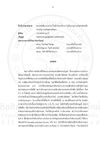 20 citations,
August 2019 in “Expert Opinion on Drug Safety”
20 citations,
August 2019 in “Expert Opinion on Drug Safety” Some medications for bladder problems can cause memory issues or mood changes, and doctors should monitor these side effects.
 20 citations,
April 2006 in “Dermatologic Clinics”
20 citations,
April 2006 in “Dermatologic Clinics” Antiandrogen therapies are beneficial for treating skin and hair conditions related to androgen levels.
 19 citations,
January 2016 in “Biological & Pharmaceutical Bulletin”
19 citations,
January 2016 in “Biological & Pharmaceutical Bulletin” Sargassum muticum extract and its component apo-9'-fucoxanthinone may help hair growth and treat hair loss.
 15 citations,
October 2003 in “Dermatologic Surgery”
15 citations,
October 2003 in “Dermatologic Surgery” Minoxidil, finasteride, and hair transplantation combined give best results for hair loss.
 14 citations,
December 1998 in “The Journal of Clinical Endocrinology and Metabolism”
14 citations,
December 1998 in “The Journal of Clinical Endocrinology and Metabolism” MENT could be a better option than testosterone for male hormone therapy and birth control because it works well at lower doses and has fewer side effects on the prostate.
 11 citations,
January 2001 in “Cambridge University Press eBooks”
11 citations,
January 2001 in “Cambridge University Press eBooks” Androgens can cause hair growth in some areas but hair loss on the scalp.
 10 citations,
October 2008 in “Andrologia”
10 citations,
October 2008 in “Andrologia” Finasteride changes antioxidant enzyme expression, possibly affecting sperm protection in rats.
 9 citations,
September 2009 in “The Prostate”
9 citations,
September 2009 in “The Prostate” Finasteride doesn't improve survival in LNCaP tumor model during off-cycle of therapy.
 6 citations,
January 2020 in “BMC Neuroscience”
6 citations,
January 2020 in “BMC Neuroscience” Male tissue has more cell death than female tissue after ischemia, and some neurosteroids only protect female cells.
 6 citations,
January 2016 in “Evidence-based complementary and alternative medicine”
6 citations,
January 2016 in “Evidence-based complementary and alternative medicine” Saw palmetto supplements may reduce prostate cancer cell growth without being toxic.
 6 citations,
October 2007 in “Medical Hypotheses”
6 citations,
October 2007 in “Medical Hypotheses” Male pattern baldness might have evolved to help protect against prostate cancer by increasing UV radiation on the scalp.
 4 citations,
August 2019 in “General and Comparative Endocrinology”
4 citations,
August 2019 in “General and Comparative Endocrinology” Male yak hair growth is influenced by DHT synthesis, which is promoted by 5α-red1 and AR during growth phases, while E2 may inhibit growth through ERα.
 4 citations,
October 1988 in “Clinics in Dermatology”
4 citations,
October 1988 in “Clinics in Dermatology” Dihydrotestosterone (DHT) is crucial for conditions like male-pattern baldness and acne, and measuring a byproduct, androstanediol glucuronide, is a better way to assess DHT's effects than DHT blood levels.
 3 citations,
May 2021 in “Dermatologic Clinics”
3 citations,
May 2021 in “Dermatologic Clinics” The document concludes that more research is needed to understand hair loss in men and to find new treatments.
 3 citations,
January 2017 in “Journal of cosmetology & trichology”
3 citations,
January 2017 in “Journal of cosmetology & trichology” The nutritional supplement improved hair quality and reduced hair loss.
 2 citations,
July 2020 in “Behavioural Brain Research”
2 citations,
July 2020 in “Behavioural Brain Research” Changing neuroactive steroids in baby male rats affects their memory and learning differently as they grow up.
 2 citations,
April 2007 in “Journal of Labelled Compounds and Radiopharmaceuticals”
2 citations,
April 2007 in “Journal of Labelled Compounds and Radiopharmaceuticals” The conclusion is that tritium-labeled testosterone metabolites can be made and are better converted into dihydrotestosterone in skin cells than in prostate tissue.
 2 citations,
December 2006 in “Lancet Oncology”
2 citations,
December 2006 in “Lancet Oncology” Finasteride significantly reduces PSA levels in men, and doctors should adjust PSA readings for those taking the drug.
 1 citations,
July 2022 in “Han'gug sigpum yeong'yang gwahag hoeji/Journal of the Korean society of food science and nutrition”
1 citations,
July 2022 in “Han'gug sigpum yeong'yang gwahag hoeji/Journal of the Korean society of food science and nutrition” Eurycoma longifolia extract may help increase testosterone levels and reduce andropause symptoms.
 1 citations,
March 2021 in “Phytomedicine plus”
1 citations,
March 2021 in “Phytomedicine plus” Cernitin™, a pollen extract, was found to significantly reduce pain and inflammation in rats with chronic prostatitis, suggesting it could be a useful alternative to certain anti-inflammatory drugs.
 1 citations,
May 2017 in “InTech eBooks”
1 citations,
May 2017 in “InTech eBooks” Some natural remedies may help with hair regrowth, but more research is needed to confirm their effectiveness and safety.
 1 citations,
February 2014 in “Archiv Der Pharmazie”
1 citations,
February 2014 in “Archiv Der Pharmazie” Carbamates may help treat androgen-dependent conditions by changing how certain lipid enzymes are produced.
 1 citations,
July 2013 in “JAMA Dermatology”
1 citations,
July 2013 in “JAMA Dermatology” Dermatologists should address erectile dysfunction in patients with skin conditions to improve their quality of life.

Eclipta alba L. (Urang-Aring) can help treat hair loss.
 January 2024 in “La Ciencia al Servicio de la Salud y Nutrición”
January 2024 in “La Ciencia al Servicio de la Salud y Nutrición” Spironolactone is effective and safe for treating hair loss, excessive hair growth, and acne.
 December 2023 in “Frontiers in pharmacology”
December 2023 in “Frontiers in pharmacology” Progesterone initially worsens but later reduces neuropathic pain in mice, through different mechanisms.
 April 2022 in “Diabetes Therapy”
April 2022 in “Diabetes Therapy” Low testosterone does not prevent prostate cancer in men with type 1 diabetes.
 January 2017 in “Korean Journal of Pharmacognosy”
January 2017 in “Korean Journal of Pharmacognosy” Modified red ginseng extract promotes hair growth and has antioxidant and anti-inflammatory effects.

Safflower extract in nanostructured carriers was more effective than minoxidil for hair growth without irritating skin.

Isotretinoin and tazarotene help treat acne, while minoxidil and finasteride promote hair growth.






























